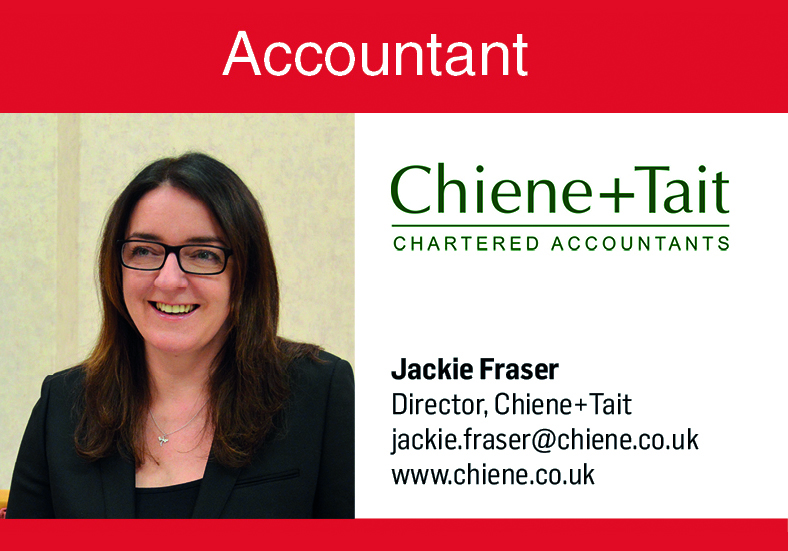This is the first in a series of case studies where we focus on a specific client scenario and offer practical guidance from three professional perspectives.
Selling a business has many differing angles to be considered. In this case study we look at legal, accountancy and financial planning pointers worthy of further discussion. All three firms are locally based here in the Highlands & Moray. The areas highlighted below should help steer the sale of your business through the myriad of legal, tax and financial complexities out there.

Planning ahead is fundamental for gaining a clear advantage in any sale negotiation, as well as for seeing a higher financial return.
Considerations include:
- How much do you want or need? When? Are you willing to defer cash now for a potentially larger capital sum later?
- Do you want to retire? Or would you prefer to stay involved with the business?
- Who is the likely purchaser? A trade buyer, existing management team, a management buy-in team, a third-party investor, or perhaps the employees? Each of these potential buyers will likely have differing views on your business, and what they want from purchasing it.
- What is being sold? Assets or shares? Perhaps you’d be keen to exclude property from the sale because the full value of this property may not be reflected in the price if it’s based on a multiple of profits, or because the purchaser has funding constraints.
- Due diligence. No matter the identity of the purchaser, they’ll want to know exactly what they’re buying. The due diligence exercise can be daunting and intense, but a good lawyer will be able to help you through it. Having the relevant contracts and documents kept in good order, and to hand, will help to reduce the stress and expense of the whole exercise too.
Finally, tax implications are a key driver in almost every business sale, so seeking appropriate tax advice is crucial.
Andrew Stott works on a wide range of commercial and corporate matters for private and public sector clients with Ledingham Chalmers Solicitors It is important to think like the potential buyer:
It is important to think like the potential buyer:
if you were considering purchasing your business, what would you want to see? Make sure your accounts are in order and that they reflect the value of your business: this will help you maximise the potential sale value. Any serious buyer will have done their due diligence in analysing the accounts and the values/figures therein so do not try to obscure anything.
From your point of view, the tax implications of selling your business will be important. Whether your disposal qualifies for capital gains tax reliefs such as Entrepreneurs’ relief depends on:
- What type of entity you trade through (eg a sole trader, partnership or company)
- Whether you are selling all or part of your business
- If you are selling any assets used in your business that you own personally
Entrepreneurs’ relief is available to an individual making a qualifying capital gain and applies at a rate of 10% on the chargeable gain. There is a lifetime limit of £10 million.
The timing of the sale should also be considered: will the sale be dependent on future profits or performance of your business? Are you going to receive all the proceeds upfront or will some of the funds be deferred?
You also need to consider what you are going to do with the proceeds after selling. Our advice would always be to seek independent financial advice to maximise the return on your investments in the most tax-efficient manner.
Jackie Fraser supports and advises her clients on a wide range of tax issues both personally and in their businesses with Chiene + Tait A successful business sale will unlock the door to the next phase of your life.
A successful business sale will unlock the door to the next phase of your life.
It is crucial to understand the amount that you need to live the life you want once the business is sold.
That’s where we come in.
By understanding your vision for the future, and forecasting your wealth over your lifetime, we can show you what you can (and can’t) do financially after the sale of your business.
Once you know the amount you need you can compare it to either what you are being offered or what you think you will get. Knowing these two numbers is crucial. I have seen business owners holding out for an amount that they may never get and don’t actually need. Alternatively, you may decide that you are better off delaying the sale until a later date so you benefit from your business income for a few more years.
Naturally, our advice will also help you to:
- Quantify the value of your existing investments and pensions.
- In collaboration with your accountant structure your remuneration in the months before you sell the business to make the most of tax planning allowances.
- Understand what you want out of life, perhaps even a new purpose, when the business is sold.
- Invest the proceeds of the sale in a way which is aligned with your new objectives and aspirations while minimising income, capital gains and inheritance tax.
The earlier we start working with you the sooner you can understand the number you need!
James Sinclair provides advice to business owners and those close to or in retirement.
Achieve Financial Planning Ltd is authorised and regulated by the Financial Conduct Authority.
All information is provided by opinion from professional services.
